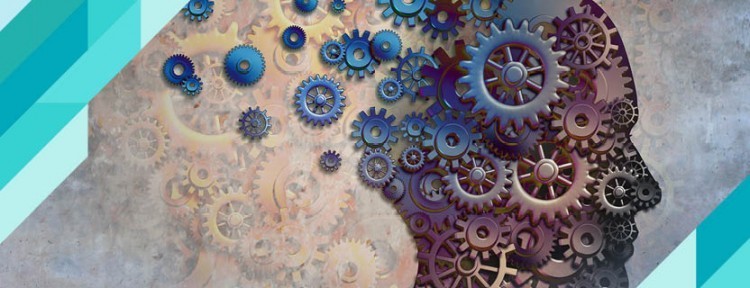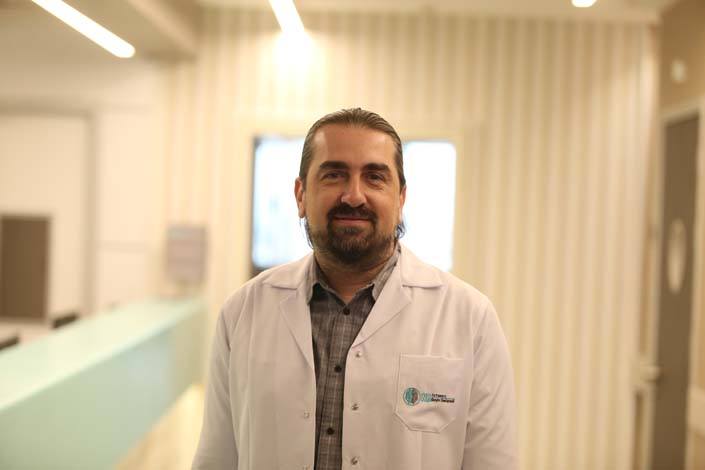Dementia
According to the World Health Organization, it is estimated that more than 50 million people are affected by dementia, making it the seventh leading cause of death worldwide. This disease, especially prevalent among the elderly, is a significant contributor to disability and dependency. Alzheimer's disease is the most common type of dementia, affecting memory, thinking, and social skills. Early recognition of symptoms is crucial for timely intervention and treatment.

What is Dementia?
Dementia diseases are often age-related conditions, including Alzheimer's disease, which accounts for about sixty percent of these cases. Some of the diseases referred to as dementia are as follows:
- Vascular dementia, which occurs due to vascular blockages.
- Dementia resulting from neurological disorders such as Parkinson's disease.
- Tumors.
- Hydrocephalus.
- Dementia caused by various vitamin deficiencies.
- Various blood disorders like anemia, etc.
- Alzheimer's disease.
- Dementia resulting from hormone disorders.
What are the Symptoms of Dementia?
The most prominent symptom of dementia is the forgetting of recently acquired information. In addition, for an individual to be considered as having dementia, there must be impairment in at least two of the following functions:
- Memory
- Communication and language
- Focus and attention
- Judgment and reasoning
- Visual perception
- If there are memory problems or impairments in the aforementioned thinking abilities, either in yourself or in your surroundings, it may be necessary to consult a specialist as soon as possible to determine the cause.
What are the Stages of Dementia?
The stages of dementia represent levels that illustrate the progression of the disease within a year. The stages of dementia can be examined comprehensively and in detail. Dementia progresses differently over the years, varying from person to person. There are two scales used to measure the progression of the disease: a comprehensive three-stage scale and a more detailed Seven-Stage Reisberg Scale developed by Dr. Barry Reisberg from New York University. These stages can be listed as follows:
- No Cognitive Impairment: There are no abnormalities observed in the person's memory or behavior. It goes unnoticed by their surroundings. When any damage occurs, the person may not be concerned about it.
- Very Mild Cognitive Impairment: Cognitive changes are subtly felt. Forgetting current events may occur. Forgetting personal belongings in different places becomes more frequent. In this stage, memory issues are perceived as signs of aging and considered a natural consequence.
- Mild Cognitive Impairment: Cognitive changes are moderately noticeable. Events that were previously considered natural consequences start to negatively affect the person's life. Changes are noticed by the person's surroundings. The individual may not pay attention to these problems and may try to conceal them. Diagnosing the disease in the early stage is difficult.
- Moderate Cognitive Impairment: Considered as the beginning of Alzheimer's disease. The person experiences difficulties with calculations. Disruptions in routine tasks begin, but they can still recognize those around them. Even if diagnosed, the person may not accept their condition. Contrary to expectations, irritability and moodiness increase. The person starts to withdraw.
- Moderately Severe Cognitive Impairment: Considered as a moderate-severe level among dementia stages. The person begins to lose the ability to solve personal problems. They mix up storylines. Significant memory loss occurs. They tend to blame others due to forgetfulness.
- Severe Cognitive Impairment: Considered as a severe level among dementia stages. The person may not be aware of their own actions. They don't remember the names of loved ones but may find their faces familiar. They struggle with meeting basic needs and require assistance. They may experience psychological distress such as recalling events that never happened or hallucinations.
- Very Severe Cognitive Impairment: Considered as a very severe level among dementia stages. The person loses motor skills. They cannot fulfill basic needs without help. Due to the advanced stage of the disease, they forget how to sit or eat and become bedridden. They cannot manage their toileting needs and may experience incontinence.
How is Dementia Treated?
Many progressive forms of dementia do not have a cure. However, there are ways to manage the symptoms and improve the quality of life for individuals with dementia. The treatment of dementia focuses on controlling the symptoms and enhancing the patient's well-being. If the patient experiences accompanying issues such as depression, hallucinations, or sleep disturbances, medications targeting these problems may be included in the treatment plan. Medications such as cholinesterase inhibitors and memantine can be used. Various adjustments may need to be made to ensure that individuals with dementia can continue to live a healthy life. For example, removing objects that may cause the patient to fall within the home environment. In some cases, sharp objects may need to be placed in inaccessible areas for the safety of the patient.
what is dementia?
Dementia is described as a group of symptoms that negatively affect memory, thinking, and social skills. It is not a single disease but rather encompasses various types. The most common type is Alzheimer's dementia, which accounts for approximately 60% to 80% of all dementia cases.
Is Alzheimer's the same as dementia?
Many people may think that Alzheimer's disease and dementia have the same meaning. However, recent advancements in neuroscience research and treatment have clarified this distinction. Alzheimer's and dementia are not the same thing. Alzheimer's is a specific type of dementia.
Dementia attack?
Dementia is a condition that is characterized by the deterioration of mental functions, including learning, memory, orientation, language, and personality, and it has a negative impact on social and occupational life. The disease starts gradually and has a progressive nature.
How is dementia diagnosed?
The diagnosis of dementia necessitates the presence of significant impairment in various cognitive domains. These cognitive deficits have a negative impact on daily activities. If there is a noticeable decline in work performance, use of everyday devices, participation in activities, household tasks, or personal care, dementia may be considered as a possible diagnosis.




